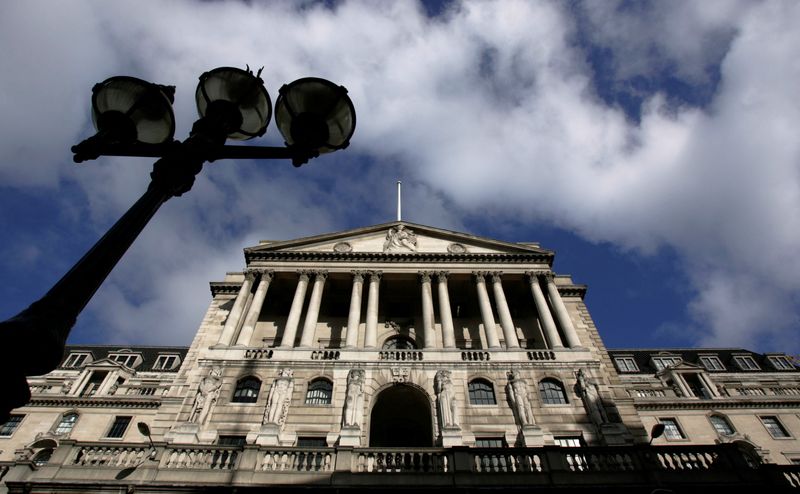By David Milliken
LONDON (Reuters) - The Bank of England will not succeed in returning inflation to its 2% target before 2028 at the earliest, according to forecasts from a leading academic think-tank which warned the British economy was succumbing to stagnation.
The National Institute of Economic and Social Research (NIESR) forecast inflation will fall from 7.9% now to 5.2% by the end of 2023 but will be slower to drop thereafter, averaging just above the BoE's 2% target in 2025, 2026 and 2027.
The economy would grow by a meagre 0.4% this year and 0.3% in 2024 - little changed from NIESR's growth forecasts three months ago of 0.3% and 0.6% for this year and next.
"Inflation, political churn, a global economy slowdown, oil shocks, strikes - there are a lot of nouns there that are resonant with the 1970s," NIESR director Jagjit Chadha said.
"And there's the re-emergence of 'the British disease'," he added, referring to stagnant growth at a time of rising prices.
British economic output is not on track to return to its pre-pandemic peak until late 2024, representing zero growth over a five-year period, NIESR predicted.
By the end of 2024, there was even a 60% chance the economy would be back in recession as it wrestled with problems including shortages of skilled workers, weak productivity, a lack of public investment and underdeveloped regional economies.
"Brexit has done a great service by revealing even more clearly the underlying problems in the British economy but has not yet located solutions," Chadha said.
NIESR's near-term growth forecasts are similar to those announced by the BoE last week, but its forecast for inflation is higher than the central bank's projections for price growth to fall below its 2% target in 2025.
Unlike the BoE, NIESR expects wage growth to hold at 6% next year as well as this year due to a lack of candidates to fill vacancies, easing some of the squeeze on living standards but pushing up costs for employers.
British inflation is currently the highest of any advanced economy, but NIESR expects the BoE to raise interest rates just once more to a peak of 5.5%, after last week's rise to 5.25%.
The BoE had struggled to explain its policy strategy to financial markets and it appeared to be buffeted by individual pieces of data that came in higher than expected, NIESR said.

"The communication has not been clear," NIESR deputy director Stephen Millard, a former BoE economist, said.
Rather than talk of multiple potential paths for interest rates to return inflation to target, as it did last week, the BoE would do better to state clearly how it would decide if rates were high enough to return inflation to 2%, he added.